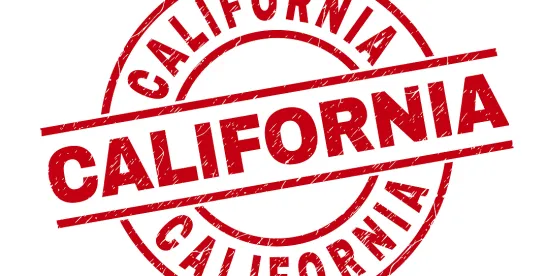Snapshot:
Major changes to PAGA are now official. Most importantly:
- Employees must have experienced each of the alleged violations to have standing to sue;
- Employers can correct inaccuracies on paystubs without penalty; and
- Employers who take specific steps to prevent Labor Code violations will be able to substantially reduce liability.
These changes apply going forward—not to currently-pending PAGA actions.
To take advantage of these changes, employers should immediately:
- Schedule and document periodic payroll audits designed to discover and address Labor Code violations before legal action arises;
- Conduct and document trainings for supervisors on key wage and hour topics, like meal breaks, rest breaks, overtime, and clocking in and out;
- Review their wage and hour policies with counsel to ensure they are compliant and up-to-date, and distributed appropriately to employees; and
- Take and document corrective actions with respect to supervisors on wage and hour compliance matters.
Analysis:
As we wrote about previously, Governor Newsom and other legislative leaders introduced Assembly Bill 2288 and Senate Bill 92, which would reform California’s Private Attorneys General Act (PAGA). On June 27, 2024, these bills were passed by the California Legislature and Governor Newsom signed them into law on July 1, 2024. These new provisions will apply to PAGA claims submitted to California’s Labor and Workforce Development Agency (“LWDA”) on or after June 19, 2024.
A comparison of relevant prior PAGA provisions to the new provisions, and key points (and our commentary) is below:
| PRIOR LAW | NEW PAGA | KEY POINTS |
|---|---|---|
| Aggrieved employee is any person who was employed by the alleged violator and against whom one or more of the alleged violations was committed. | An “aggrieved employee” is any person who was employed by the alleged violator and personally suffered each of the violations alleged during the PAGA period. |
PAGA Standing Limitation To be “aggrieved,” an employee must now have “personally suffered each of the violations alleged.” Previously, all the employee had to show was that an employee had one or more alleged violations committed against them – but that employee could bring any and all claims on behalf of all workers in the PAGA-designated class. This is a key change and one that will make PAGA litigation less burdensome for employers. |
| Violations of Labor Code § 226 (a)(6) and (a)(8) (which relate to providing accurate data on employee wage statements), are only considered “cured” if an employer shows that it provided a fully compliant, itemized wage statement to each aggrieved employee for each pay period for the three-year period prior to the date of the written PAGA notice (which is the letter provided to the employer and the LWDA providing the facts and theories relating to the Labor Codes that were allegedly violated). |
A violation of Labor Code § 226 (a)(8) (which requires the name and address of an employee’s legal employer to be listed on their wage statements) is considered cured when an employer has provided written notice of the correct information to each aggrieved employee. A violation of Labor Code § 226 (a) (1) through (7) and § 226 (a)(9) is considered cured when an employer provides an accurate wage statement or electronic access to the information required to be on a wage statement. Violations of Labor Code § 226 where the employee can still promptly and easily determine from the wage statement the accurate information, or would not be confused or misled about the correct identity of their employer have a civil penalty of $25 for each aggrieved employee per pay period. Other isolated, nonrecurring errors that do not extend beyond 30 consecutive days or four consecutive pay periods (whichever is less) have a penalty of $50 for each aggrieved employee per pay period. |
Reduced Penalties for Wage Statement Violations If an employer violates Labor Code § 226 (a)(8) by incorrectly listing its name and address on an employee’s wage statements, it can “cure” that violation by providing the correct information, in writing, to each aggrieved employee for the pay periods in which the employer’s name and/or address were incorrectly listed. If an employer provided other inaccurate information on an employee’s wage statement (such as incorrectly listing the total hours worked or wages earned), an employer can now “cure” such a violation by giving employees a corrected wage statement, or by providing employees with electronic access to that information. Previously, significant penalties for technical wage statement violations that caused no harm to PAGA plaintiffs were common. Now, such technical violations that cause no harm to PAGA plaintiffs have considerably reduced penalties, which will prevent PAGA plaintiffs from wielding innocuous wage statement violations to seek significant penalties from employers. |
|
If there is no specific civil penalty associated with a Labor Code violation, the penalties are as follows:
|
If there is no specific civil penalty associated with a Labor Code violation, the penalties are as follows:
|
Clarification of Penalties for “Subsequent Violations” There was previously significant debate as to what constituted a “subsequent violation.” Employees argued that every violation other than the initial violation was a subsequent violation, whereas employers argued that subsequent violations were only those violations that occurred after there had been a court or agency finding of a violation. Now, it is clear that penalties for subsequent violations are available only if there is first an agency or court finding of a violation. |
| N/A |
Prior to receiving the PAGA notice of violation, if an employer demonstrates that it has taken all reasonable steps to be in compliance with all provisions identified in the notice, the civil penalty that may be recovered in a civil action pursuant to these specific provisions shall not be more than 15% of the penalty sought. Whether the employer’s conduct was reasonable shall be evaluated by the totality of the circumstances and take into consideration the size and resources available to the employer, and the nature, severity and duration of the alleged violations. |
Change in Structure of Civil Penalties Employers have the opportunity to significantly reduce penalties assessed if they can show they took “reasonable steps” to be in compliance prior to receiving a PAGA notice. Examples of such “reasonable steps” can include (but are not limited to):
Even if a violation occurs despite the employer taking such measures, it does not mean that an employer failed to take all “reasonable steps.” Most importantly, if an employer has taken such “reasonable steps” to comply, the penalties that can be recovered are limited to 15% of the total penalties that could otherwise be sought. This is a significant change that will reward employers who have been proactive and made a good faith effort to comply with the Labor Code and will considerably limit exposure to penalties for such employers. |
| N/A |
Within 60 days after receiving the PAGA notice of violation, if an employer demonstrates that it has taken all reasonable steps to be in compliance with all provisions identified in the notice, the civil penalty that may be recovered in a civil action pursuant to these specific provisions shall not be more than 30% of the penalty sought. Whether the employer’s conduct was reasonable shall be evaluated by the totality of the circumstances and take into consideration the size and resources available to the employer, and the nature, severity and duration of the alleged violations. |
Change in Structure of Civil Penalties Even if employers are unable to take “reasonable steps” prior to receiving the PAGA notice, if they act promptly (within 60 days) to take “reasonable steps” after receiving the PAGA notice, their exposure to penalties will still be significantly limited to 30% of the penalty sought. This is a significant change that will reward employers who act quickly after becoming aware of violations and make a good faith effort to comply with the Labor Code and will considerably limit exposure to penalties for such employers. |
| N/A |
Labor Code §§ 201, 202, 203, 204, and 226 relate to violations for failure to pay timely wages, failure to pay wages on termination, and wage statement violations. Aggrieved employees shall not collect a civil penalty for any violation of §§ 201, 202, 203, 204 that are neither willful or intentional, or a violation of § 226 that is neither knowing or intentional that is in addition to the civil penalty collected by that aggrieved employee for the underlying unpaid wage violation. |
Prohibition on Derivative Penalties PAGA plaintiffs frequently seek to recover derivative penalties for the same violation. For example, if an employer underpays an employee’s wages, PAGA plaintiffs would, for example, also seek penalties for a failure to: timely pay those wages in the pay period it was earned, timely pay those wages at termination, and properly list those wages in a wage statement. Now, penalties cannot be awarded for such derivative claims. This is a significant change that prevents PAGA plaintiffs from double dipping and will considerably limit exposure to penalties for underpayment violations. |
| N/A |
An employer who takes “reasonable steps” and cures a violation shall not be required to pay a civil penalty for that violation. An employer who cures a violation of Labor Code § 226 (a) (which requires employers to provide accurate wage statements) shall not be required to pay a civil penalty for that violation. Any other employer who cures a Labor Code violation, but does not take “reasonable steps” to come into compliance before or after receiving the PAGA notice shall pay a civil penalty of no more than $15 per employee per pay period for any violations that the employer cures. |
Elimination or Reduction of Penalties for Cured Violations Employers who take “reasonable steps” to comply with a violation before or after receiving the PAGA notice and also cure the violation are not subject to any civil penalties. However, even if an employer does not take “reasonable steps” to come into compliance, if the employer cures a violation, the penalty for such violation is reduced to $15 for any violation that the employer cures. This is a significant change that provides employers with even more opportunities to reduce the penalties that are associated with a violation or avoid violations completely by taking “reasonable steps” to come into compliance and also curing any violations. |
| An aggrieved employee may recover civil penalties in a civil action filed on behalf of themselves and other current or former employees against whom one or more of the alleged violations was committed. | An aggrieved employee may recover civil penalties and may be awarded injunctive relief in a civil action filed on behalf of the employee and other current or former employees against whom a violation of the same provision was committed. |
Availability of Injunctive Relief A PAGA plaintiff can now seek injunctive relief in addition to civil penalties and attorneys’ fees and costs.
|
| Civil penalties recovered by aggrieved employees shall be distributed as follows: 75 percent to the LWDA for enforcement of labor laws, including the administration of PAGA, and for education of employers and employees about their rights and responsibilities under the Labor Code, to be continuously appropriated to supplement and not supplant the funding to the agency for those purposes; and 25 percent to the aggrieved employees.
|
Civil penalties recovered by aggrieved employees shall be distributed as follows: 65 percent to the LWDA for enforcement of labor laws, including the administration of PAGA, and for education of employers and employees about their rights and responsibilities under the Labor code, to be continuously appropriated to supplement and not supplant the funding to the Agency for those purposes; and 35 percent to the aggrieved employees. |
Increased PAGA Recovery Aggrieved PAGA plaintiffs will now receive a 35% share of any PAGA recovery, which is an increase from the 25% share they previously received. |
| N/A | The penalty recovered pursuant to PAGA shall be reduced by one-half if the employees’ regular pay period is weekly rather than biweekly or semimonthly. |
Weekly Pay Period Penalty Reduction Historically, employers with weekly payroll calendars were penalized more than employers with bi-weekly or semimonthly payment schedules because PAGA penalties are generally assessed per pay period. To level the playing field for employers who pay weekly, PAGA penalties are now reduced by one-half if the employees’ regular pay period is weekly rather than biweekly or semimonthly. |
| N/A |
The trial court may limit the evidence to be presented at trial or otherwise limit the scope of any claim filed pursuant to PAGA to ensure that the claim can be effectively tried. Provides that nothing in PAGA shall prevent a court from consolidating or coordinating civil actions filed pursuant to PAGA alleging legally or factually overlapping violations against the same employer. |
Trial Court PAGA Management Trial courts now have discretion to effectively manage PAGA claims and can limit the evidence to be presented at trial, limit the scope of any PAGA claim, and can consolidate or coordinate PAGA actions that have overlapping legal or factual violations against a single employer. |
| N/A | Specifies that amendments made to PAGA through this bill shall apply to a civil action brought on or after June 19, 2024, except that, the amendments made to PAGA through this bill shall not apply to a civil action with respect to which the LWDA notice was filed before June 19, 2024. |
Effective Date of New Reform These PAGA reforms apply to civil actions brought on or after June 19, 2024, but will not apply to cases where notice was filed with the LWDA before June 19, 2024.
|





 />i
/>i

